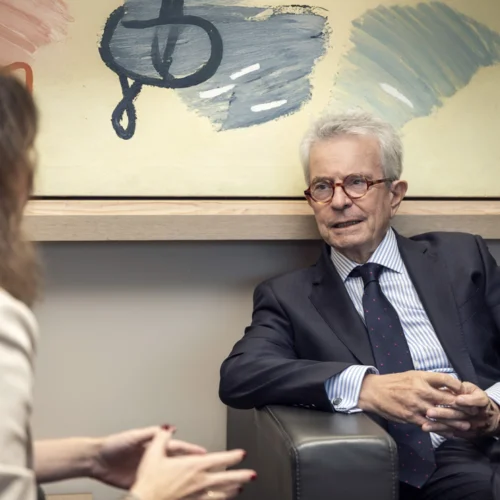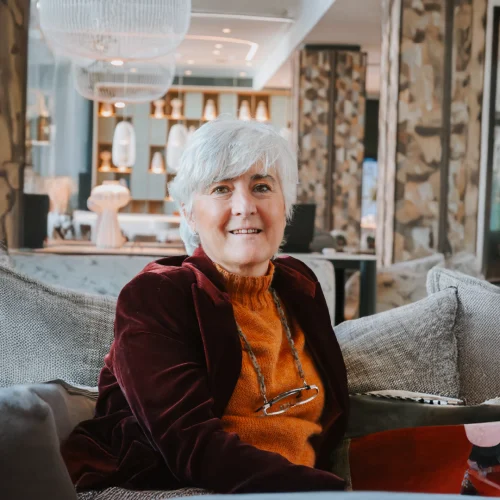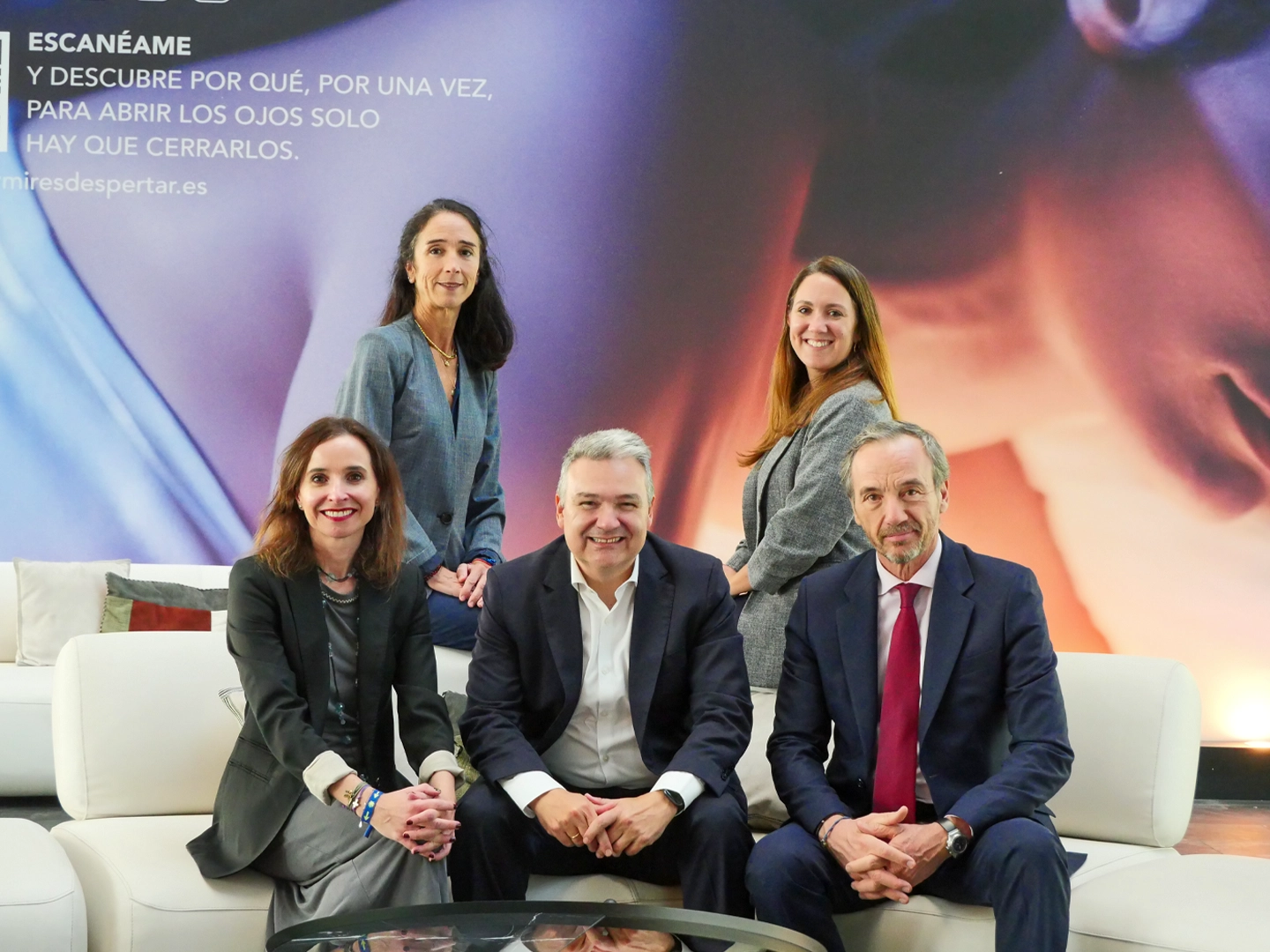
A Coffee With: Germán Granda
Germán Granda, CEO of Forética
Interview with Germán Granda, by Teresa Zamora.
October 28, 2025
“We have always taken more from nature than we have given back, but the next may be the first sustainable generation.”
With enormous humility, which is characteristic of him, Germán Granda acknowledges that this phrase is not his own, but he puts it on the table as a mantra, demonstrating another great trait of his personality: optimism.
Our coffee with him leaves us with that positive outlook: there is still work to be done, but it is necessary to look back and see the progress made, to leverage what has been built, gain momentum, and continue moving towards a more sustainable future.
Convinced that it will be achieved, Germán Granda shares with us in this interview a calm reflection, but also action, past, present, and the challenges and milestones he has achieved while leading Forética, an organization he has managed to lead with integrity and immense perseverance.
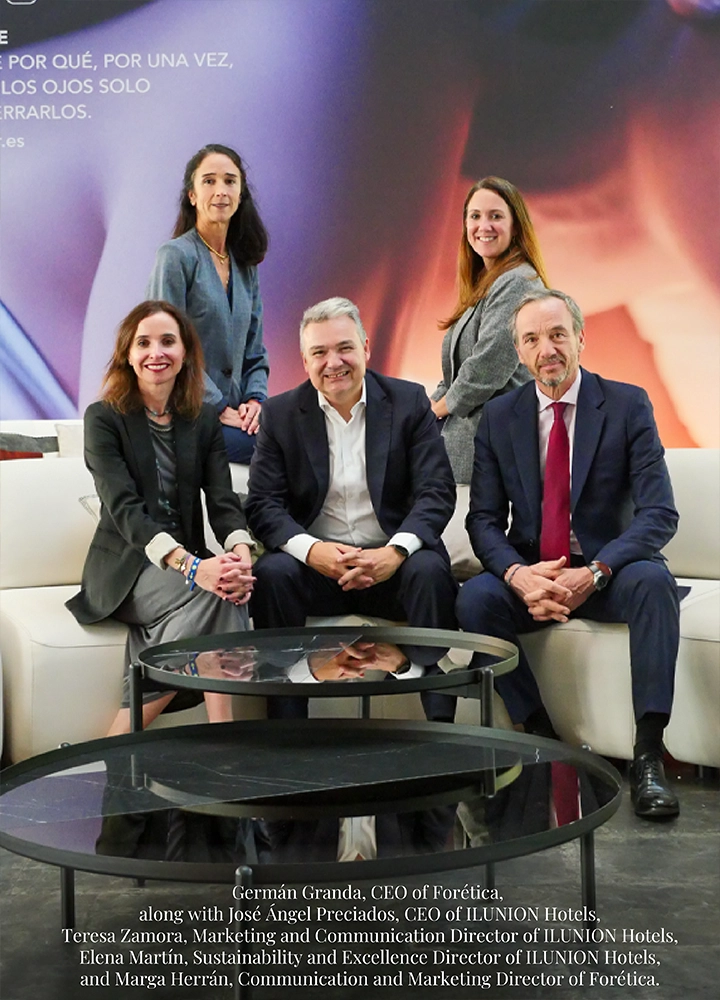
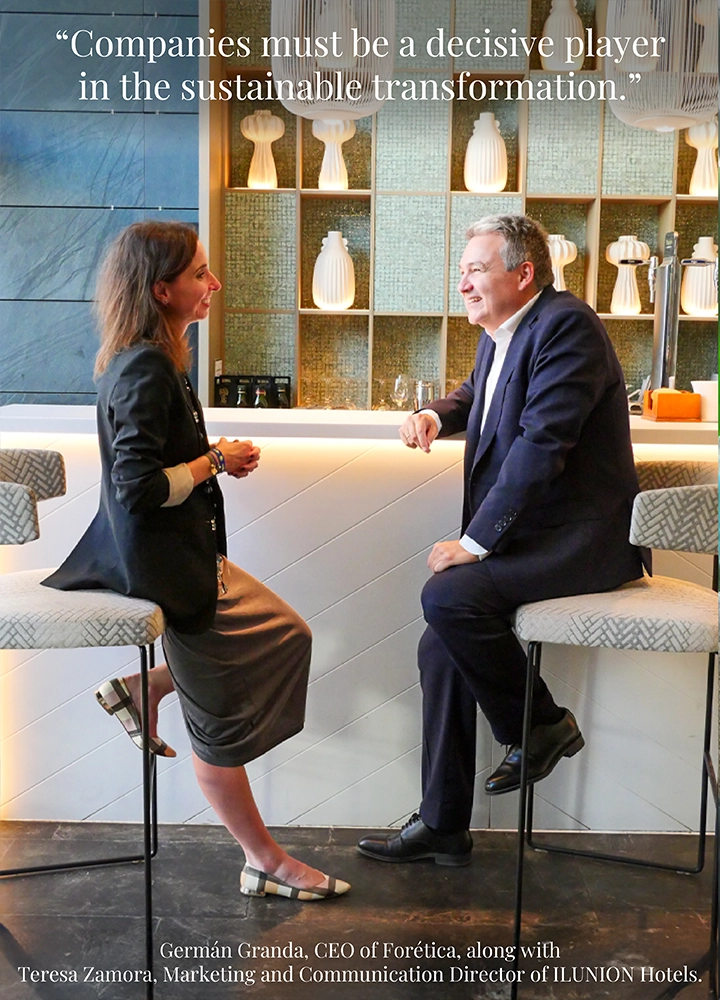
What led you to focus your career on sustainability? Was there any key moment that marked that path?
I studied Business Administration with a specialization in Finance in Madrid in the mid-90s, at a time of global opening. While many opportunities were being generated, significant challenges were also beginning to emerge in the public eye: environmental issues, human rights issues… I wondered what companies could do about those challenges.
This concern led me to study sustainable development in England, where I started working for a company that integrated economic, social, and environmental impact. There, I confirmed that it was possible to do business from a broader perspective.
Before that, I worked for the European Commission in Brussels, working on trade fairs in West Africa. Then I was at the United Nations, in New York and Guatemala, always linked to how companies could contribute to development. I saw that it wasn’t just about public aid or charity, but about generating real opportunities, integrating small businesses into global value chains.
All of this convinced me that companies can—and must—be a decisive player in sustainable transformation.
What challenges do you remember from your early years in this field?
In those years, we were seen almost as aliens. There were no contacts in companies or in public administrations. What we now call sustainability was then called “corporate social responsibility,” and these concepts were very poorly integrated into business strategy, with no positions in organizations and much less in governments.
There were also no tools to measure, report, or connect those efforts with competitiveness. Issues were addressed in a scattered way and without a strategic vision.
Fortunately, the scenario has changed radically today. Now there are regulations, reporting frameworks, tools, and, above all, awareness. Companies understand that anticipating sustainability challenges not only reduces risks but generates opportunities: new products, new markets, reputational improvement, and talent attraction.
What personal values have guided you in your professional career?
First, perseverance. Since we started at Forética until today, we have gone through financial crises, the pandemic… but always with the conviction that a business model based on sustainability, inclusion, good governance, and improving people’s lives is a solid path toward long-term success.
And the second value, integrity. Being true to principles, even when the environment is not supportive. Sustainability is a challenge for the present and the future, and one must remain consistent with that vision.
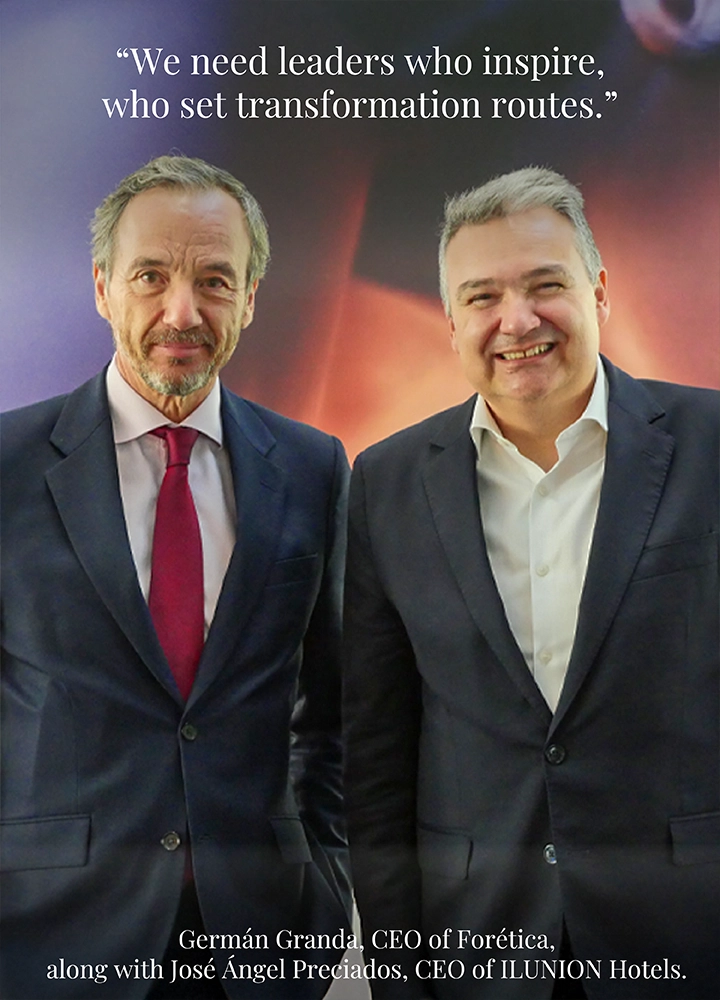
How has Forética evolved since its founding? What milestones would you highlight?
Forética has evolved at the pace at which sustainability has been integrated into business strategy. We went from working with isolated areas within companies to becoming an organization that accompanies the global transformation of companies.
A fundamental milestone was the creation in 2021 of the Spanish Business Council for Sustainable Development, a space that brings together presidents and CEOs of large companies to address strategic sustainability challenges. It is a format similar to other business councils in Europe or America, and in our case, it has the support of His Majesty the King, Felipe VI.
We have also seen how sustainability has ceased to be something only for specific departments. Today it affects all areas: finance, human resources, operations, communication, purchasing, marketing… In addition, new challenges have emerged, such as those derived from artificial intelligence or the circular economy (formerly recycling), mobility itself, or climate change, which did not even exist as concepts 25 years ago.
In short, we have witnessed an evolution in all fields and in a short time, and in that sense, Forética has been a meeting place and a knowledge center for a great many companies.
What are the major challenges in corporate sustainability today?
From Forética and the Business Council, we have identified three priority systemic challenges:
- The climate emergency, which demands reducing emissions and adapting processes, products, and operations, in order to comply with the Paris Agreement.
- The loss of nature, which goes beyond protecting: we have to regenerate. Concepts like Nature Positive or Water Positive emerge, which invite us to question whether, as companies, we are leaving the environment better than we found it.
- Inequality, in all its dimensions: economic, territorial, gender, disability… Companies must ask themselves if they are helping to close gaps or if, on the contrary, they are widening them.
What role should business leaders play in this transformation?
A key role. We need leaders who inspire, who set transformation routes, who establish goals, and who demonstrate with actions that they are making progress. Leadership today must be coherent, strategic, and committed. Discourse is no longer enough; sustainability must be incorporated into all operations and accountability must be given for it.
25 years ago, this was barely talked about in boardrooms. Today, fortunately, it is part of the language and agenda of many CEOs. But we must continue.
From your external perspective, how do you view ILUNION Hotels as a company committed to sustainability?
ILUNION Hotels is a clear example of how to integrate sustainability into the core of the business model. Inclusion has been a hallmark from the beginning, and it has been shown to be compatible with profitability.
But not only that. In recent years, the company has incorporated environmental criteria, energy efficiency, use of renewables, circular economy… It is setting a standard in the sector and helping to demonstrate that another tourism model is possible.
I would also highlight the transparency and coherence in its communication, both in its annual reports and day-to-day operations. That generates trust and credibility.
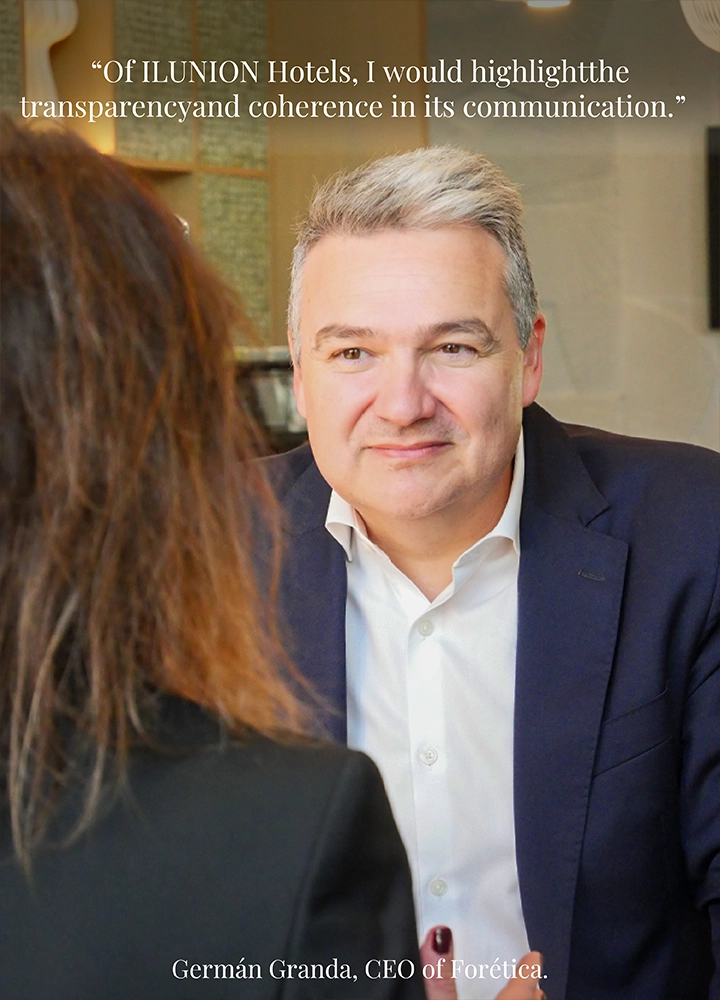
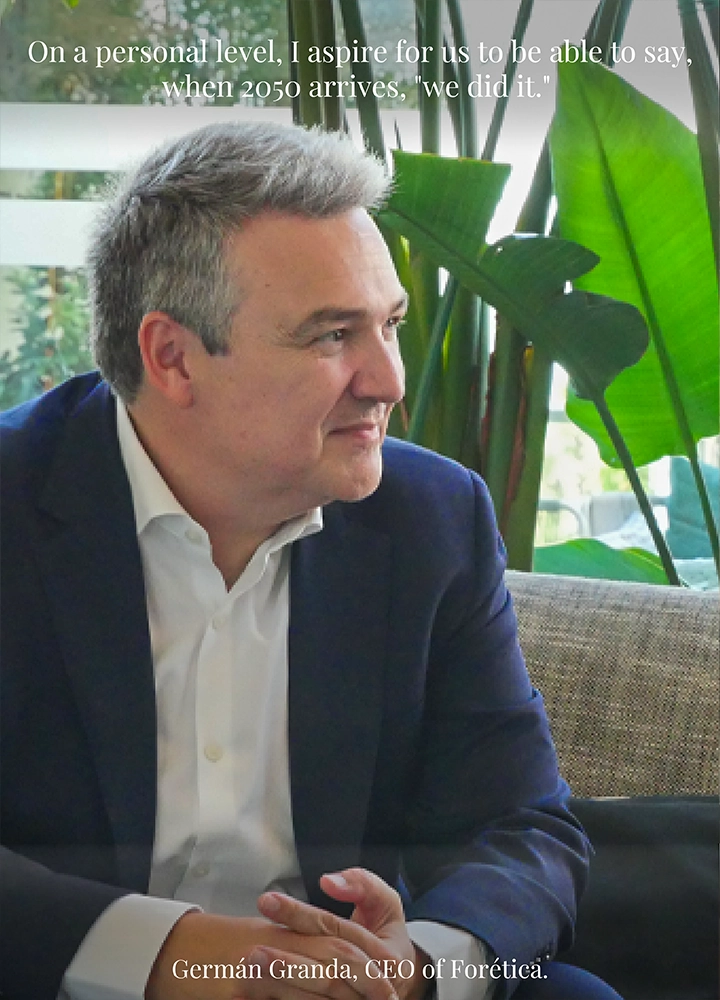
What legacy would you like to leave as the leader of Forética and as an individual committed to sustainability?
I would love for the perspective of sustainability to always be incorporated into all business decisions—products, services, hires. It would be a valuable inheritance: to leave behind a more conscious business model, capable of generating long-term value.
On a personal level, I aspire to be able to say, when 2050 arrives, “we did it.” That we managed to transform our production and consumption systems to respond to the climate emergency, just as the ozone layer was successfully regenerated some time ago. That would be a beautiful legacy.
What is your opinion on the current moment in Europe, where there appears to be a certain slowdown in the green agenda?
We are experiencing a phase of recalibration, not retreat. After many years of strong regulatory momentum, it is now time to digest the progress, simplify processes, adapt industrial strategies, and understand the new geopolitical balances.
Europe has led the regulation, but now it needs to drive a clean industry that creates jobs. China is moving forward along this line. And in the United States, although the federal government has had softer stances, many states, cities, and companies remain firm in their commitment. I wish we were all more aligned to advance faster, but it is key that we continue to promote this path, now also for economic and strategic reasons.
Only 8% of materials globally are reused. How do you see the role of the circular economy in this scenario?
It is a huge opportunity. We only reuse 8% of materials, which means we have a lot of room for improvement. Furthermore, in a world with finite resources, rethinking how we use energy, materials, food, and more makes even more sense.
Spain, for example, can lead circular industries by leveraging this potential. It makes no sense to have buildings that waste half their energy or industries that generate so much waste. Sustainability is, in reality, a sign of economic intelligence.
What role do new generations have in this transformation process?
They have a lot to contribute, but also a great responsibility. That is why it is important not to fall into despair or climate anxiety.
The technology exists, the solutions are on the table, and this could be the first truly sustainable generation. As Oxford University data scientist, Hannah Ritchie, argues in her book “Not the End of the World”: despite the seriousness of environmental problems, we are not doomed and solutions are possible. And she explains this based on data. We continue to close poverty gaps, the link between growth and CO2 emissions has been improving, up until now we have always taken more from nature than we have given back, but this trend has been reversed, and the next generation may be the first sustainable one. They can be the ones who change that because they are the first to have understood the planet’s limits.
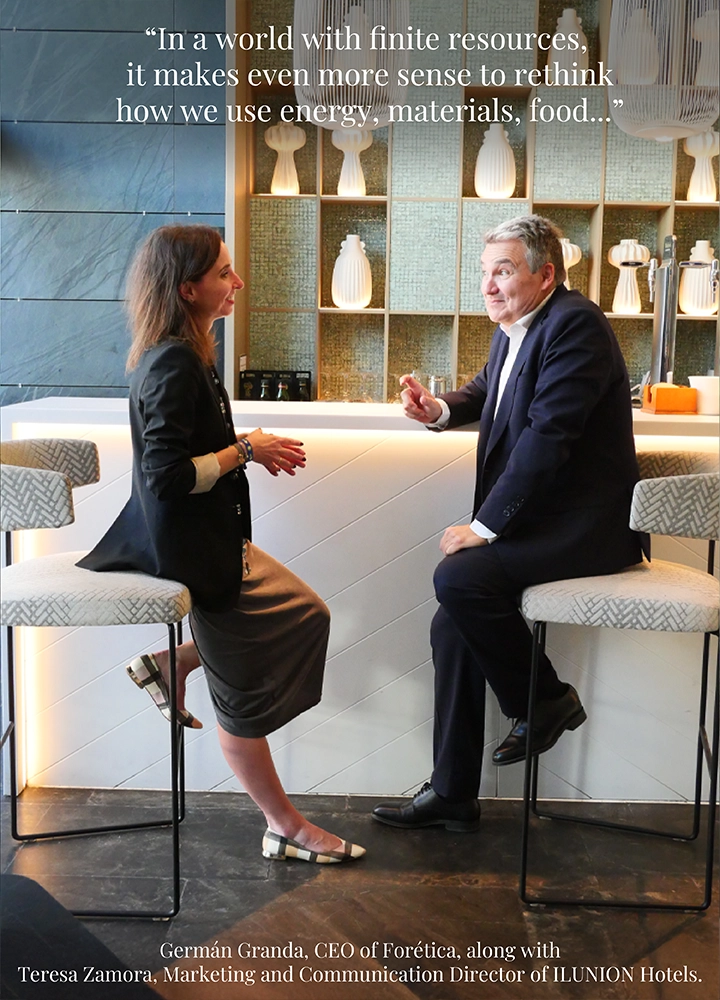
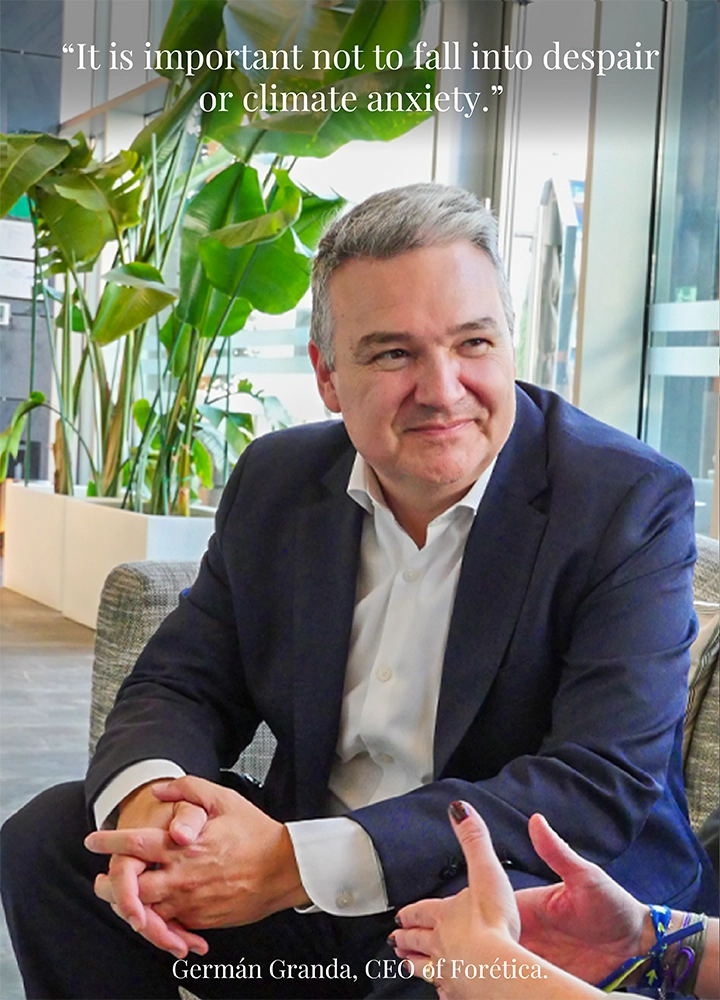
What inspires you in your daily life? Are there people or projects that particularly motivate you?
I am inspired by seeing how many companies are transforming their processes. Small changes that make big differences: a plant that gives back more water than it consumes (water positive), a new cement that reduces emissions by 90%, recycled footwear… All of this demonstrates that things can be done differently.
Every time we incorporate an environmental or social perspective into a challenge, new ideas emerge, solutions that are more inclusive, and often more competitive. I am also inspired by the commitment of many people, such as those who are part of the ONCE Social Group who, through their daily example, show that positive impact is possible.
And on a personal level, how do you manage to disconnect and maintain balance?
Connection with nature is key for me. It helps me maintain balance and, at the same time, reinforces my commitment to its protection. I also highly value projects with social impact, such as Give & Gain, which we organize in collaboration with NGOs.
And of course, my family, my wife and my three daughters, the focus and, at the same time, the guiding light of my life. I deeply appreciate organizations that allow for work-life balance, that take care of people, and give them space to be where they are needed most.
